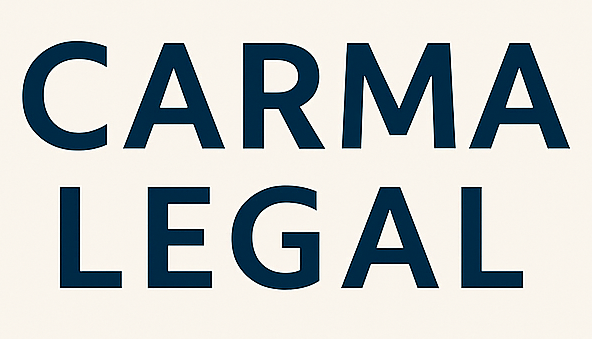Understand premises liability
When you slip, trip, or fall inside a store, the property owner’s responsibility to keep you safe falls under premises liability law. A store accident injury attorney specializes in this area, helping you enforce the duty of care owed by retailers and landlords. Understanding how premises liability works is the first step toward protecting your rights.
Duty of care defined
Property owners and managers must maintain safe conditions for customers and invitees. This duty includes regularly inspecting aisles, removing hazards such as spills or debris, repairing broken flooring, and providing adequate lighting. Failure to meet these basic obligations can amount to negligence.
Establishing negligence
To build a successful claim, you or your lawyer must show:
- The owner owed you a duty of care
- The owner breached that duty by allowing an unsafe condition
- You suffered an injury directly because of that breach
- You incurred damages such as medical expenses and lost wages
Most states set a two-year deadline to file a premises liability claim [1]. A store accident injury attorney can ensure your paperwork meets all statutory requirements.
Identify store accident scenarios
Retail environments pose a variety of hazards. Knowing the most common accident types helps you and your lawyer pinpoint liability and gather the right evidence.
Slip and fall incidents
Wet floors, recently mopped surfaces, spilled liquids, or loose floor mats can cause sudden slips. These incidents often lead to sprains, fractures, or head injuries. If you slipped in a grocery aisle, you might work with a grocery store slip and fall lawyer.
Trip hazards
Uneven flooring, torn carpeting, exposed cables, and cluttered aisles all present trip-and-fall risks. When you trip over an obstruction, a trip and fall attorney can help identify whether the store failed to address known dangers.
Falling objects
Unsecured merchandise or poorly stacked displays can result in heavy items falling from shelves. Injuries range from bruises and lacerations to concussions. A premises liability lawyer can investigate storage practices and safety protocols.
Security lapses
Inadequate lighting, broken cameras, or unlocked entry points may invite assaults or robberies. If you’re hurt in an attack due to lax security, a negligent security attorney can determine if the store’s policies contributed to your injury.
| Accident type | Description | Relevant attorney |
|---|---|---|
| Slip and fall | Wet or cluttered surfaces | slip and fall lawyer |
| Trip and fall | Uneven floors, torn carpet, exposed cables | trip and fall attorney |
| Falling merchandise | Objects toppling from shelves | premises liability lawyer |
| Security incident | Assaults, robberies, inadequate surveillance | negligent security attorney |
Thousands of personal injury claims each year stem from shopping-related incidents, underscoring the importance of timely legal support [2].
See attorney advantages
Hiring a store accident injury attorney offers several key benefits over handling your claim alone. Your attorney becomes an advocate, guiding you through complex legal processes and negotiations.
Legal expertise and guidance
A specialized lawyer understands premises liability statutes, case law, and the burden of proof required in your jurisdiction. They can:
- Interpret state-specific deadlines and procedural rules
- Assess the strength of your claim based on facts and evidence
- Advise on potential hurdles such as comparative negligence
Negotiation with insurers
Insurance adjusters aim to minimize payouts. Your attorney handles all communication, filing demand letters, responding to counter-offers, and pushing for fair compensation.
Contingency fee arrangement
Most store accident lawyers work on a contingency basis. You pay nothing upfront and only owe legal fees if you win your case. This arrangement aligns your interests: the attorney succeeds only when you secure compensation.
Navigate the claims process
The path from incident to settlement involves multiple stages. A knowledgeable attorney ensures you meet each milestone on time and with adequate documentation.
Filing within deadlines
Missing your state’s statute of limitations can bar your claim permanently. An attorney files your complaint and all necessary court documents before the deadline, protecting your right to compensation.
Documenting your case
Your lawyer will gather and preserve essential evidence:
- Surveillance footage from the store
- Maintenance logs or cleaning records
- Incident reports and witness contact information
Negotiating a settlement
Once liability and damages are established, your attorney presents a formal demand. Negotiations may involve:
- Back-and-forth on valuation of medical bills and lost income
- Mediation sessions supervised by a neutral third party
- Preparing for trial if a fair offer is not reached
Gather key evidence
Strong evidence is crucial for proving liability and quantifying your losses. Your lawyer coordinates a thorough investigation.
Medical records
From emergency room visits to follow-up physical therapy, every treatment document supports your medical damage claim. Detailed records reveal the full scope and cost of your care.
Photographs and videos
High-resolution images of the hazard, your injuries, and the accident scene create a visual record. Time-stamped security footage can confirm the store’s awareness of unsafe conditions.
Witness statements
Eyewitnesses provide firsthand accounts of how the hazard existed and why the store should have known about it. A lawyer will:
- Interview witnesses professionally
- Secure signed, sworn statements
- Prepare witnesses for depositions or trial testimony
Maximize compensation
A core goal of working with an attorney is to ensure you receive full compensation for all losses, both economic and non-economic.
Calculating damages
Damages fall into two main categories:
- Economic: medical expenses, rehabilitation costs, lost wages, future earning capacity
- Non-economic: pain and suffering, emotional distress, loss of enjoyment of life
Presenting economic losses
Your lawyer compiles bills, receipts, and expert reports to substantiate every dollar spent on treatment and rehabilitation.
Claiming non-economic damages
Attorneys use settlement analytics and comparative case studies to assign a fair value to intangible losses. This may involve:
- Pain and suffering multipliers
- Daily life impact journals
- Expert testimony on quality-of-life reductions
Choose the right firm
Not all law firms offer the same level of expertise or client service. Be strategic when selecting legal representation.
Evaluate experience
Look for attorneys who focus on premises liability and retail accident cases. Firms that have:
- Recovered over $200 million in verdicts and settlements [3]
- Decades of combined trial experience
Check client testimonials
Reviews and case results provide insight into a firm’s reputation. Search for feedback on communication, professionalism, and outcomes.
Assess communication style
You deserve regular updates and clear explanations. Before you sign, confirm:
- How often you’ll hear from your lawyer
- Who your main point of contact will be
- The preferred method of communication (phone, email, portal)
Take action promptly
After a store accident, immediate steps can strengthen your case and safeguard your health.
Seek medical attention
Even if injuries seem minor, some conditions worsen over time. A medical record creates an official timeline linking treatment to your accident.
Report to property owner
Notify a store manager or supervisor, and ask for an incident report. Keep a copy for your records.
Schedule legal consultation
Contact a store accident injury attorney as soon as possible. Many firms offer free case reviews and work on contingency, reducing your upfront costs.
Leverage additional resources
Your recovery journey may involve related legal services. A full-service firm can coordinate across practice areas.
Specialized practice areas
Look for attorneys experienced in:
Local knowledge
A lawyer familiar with your state’s courts and local store practices can expedite document filings and negotiation strategies.
Related legal services
In complex cases, you might need experts such as accident reconstruction specialists, medical consultants, and vocational analysts. A well-connected firm facilitates these referrals.
Move forward with confidence
Choosing the right store accident injury attorney equips you to face insurers, gather compelling evidence, and maximize your compensation. By acting quickly—seeking medical care, reporting the hazard, and consulting a lawyer—you protect your legal rights and set the stage for a stronger claim. Reach out today for a free case review and take the first step toward recovery and fair compensation.








